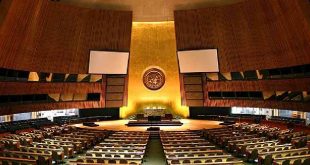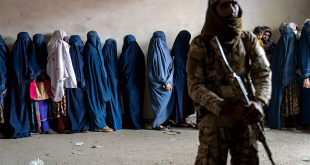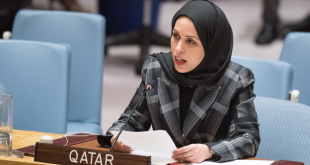KABUL: The perception of corruption in Afghanistan’s judiciary is leading citizens to turn to the Taliban to resolve their legal cases swiftly and with a lack of red tape.
When he became president in September 2014, Ashraf Ghani expressed concerns about corruption in Afghanistan, particularly within the judiciary. During his inaugural speech, Ghani vowed to use his constitutional powers to go after government corruption.
“Corruption in judiciary paves the way for insecurity,” said Ghani. “If we want rule of law and corrupt officials to be brought to justice, we must ensure the transparency and reliability of the judiciary.”
More than a year into his presidency, little seems to have changed. People still complain of rampant corruption in the judiciary, which leads them to seek alternatives.
A resident of Ghazni province, who refused to be named for security reasons, told VOA that people opt for Taliban courts out of desperation.
“I had a legal problem with my brother. The district center is only 300 meters away from us. I filed several complaints, but nobody helped me,” he said. “Despite being two kilometers away from our village, when I went to the Taliban, they resolved my problem with one letter.”
Dawod, a resident of northern Faryab province, told VOA that a bike had been stolen from his village, and when people went to file a complaint with the local officials, the officials demanded a bribe.
“We had to bribe our way out, and by the time we got hold of the bike, we had already paid double the amount the bike was worth,” Dawod said.
According to The New York Times and The Long War Journal, a project of the Foundation for Defense of Democracies that reports on the global war on terror, the Taliban control or contest about 70 districts across Afghanistan.
Afghan officials, speaking to VOA, rejected those publications’ numbers, but did confirm certain districts to be in Taliban control. They vowed to take them back soon.
Mohammad Sarwar Osmani Farahi, co-chair of the judiciary committee of the lower house of the Afghan parliament, told VOA that senior officials of the Afghan government have repeatedly told parliament that several dozen districts are out of government control.
“When summoned to the parliament, both the director of national intelligence and minister of interior have confessed several times that around 100 districts lack government control,” said Farahi. “ … So when you have Taliban in control, you will also have their courts.”
Farahi added that Taliban rulings have no legitimacy in the Afghan legal system.
The leadership of the Afghan judiciary rejects allegations of rampant corruption. When contacted for this story, Chief Justice Sayed Yousef Halim refused to comment.
But a judge in eastern Afghanistan, speaking on condition of anonymity because of the sensitivity of the issue, explained to VOA why people choose Taliban courts.
“Taliban courts are similar to jirgas, where both parties lose their rights to negotiate, and the decision is imposed and premised on the rulings of mediators,” he said.
The judge added that government judiciary is based on a three-phase trial, whereas the Taliban make a decision in the first phase.
Some analysts also point to a legacy of parallel governments in Afghanistan.
Haji Lalgul, chair of the Afghan Human Rights Organization, a nongovernmental rights advocacy group operating in Afghanistan, told VOA that parallel judiciary is not a new phenomenon in the country.
“It goes decades back in history. During the mujahedeen era [in the 1990s], different parties had their own judicial systems and rulings. Powerful people used to have their own courts and rulings,” Lalgul said.
He added, “Corruption in government could be a reason, but it is not the main reason why people go to nongovernment courts to resolve their cases.”
Some Afghan officials argue that the Taliban enjoy impunity, and it is that that makes them effective in resolving disputes.
“The Taliban do not have to report to a higher authority, nor will they be questioned when they commit violence,” Afghan parliament member Fatehullah Qaisari told VOA. “They can act with impunity, and when government officials do so, they will be subject to scrutiny and investigation.”—(VOA)
 Afghanistan Times
Afghanistan Times



